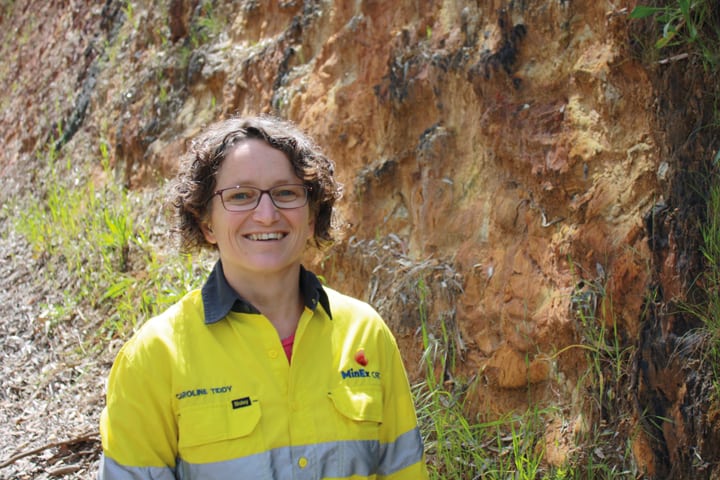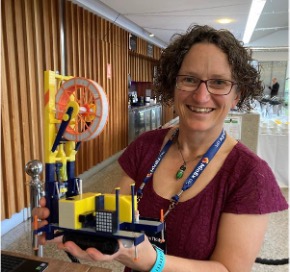We are excited to have Assoc Prof Caroline Tiddy from the University of South Australia visiting us in person to present her amazing work on new technologies in mineral exploration on Wednesday, 1 Nov, 1pm, Madsen Room 449.

Abstract
Our world is embarking on a green transition to see us move towards a low carbon economy through utilisation of new and emerging renewable technologies. Building renewable technologies requires supply of metals that are critical to their operation. These metals include copper. Supply of copper (and other critical metals) is hindered by declining rates of discovery of new copper-bearing mineral deposits, which is primarily driven by the exploration search space being forced into buried terranes as deposits once exposed at the Earth’s surface have already been discovered. Furthermore, sampling the subsurface may only be achieved through drilling, which is a notoriously expensive and lengthy process. The challenge may be mitigated by building a tool kit of technologies and techniques that will decrease the risk of exploration and increase chances of discovery success.
This presentation will provide an overview of research being undertaken within the MinEx CRC to develop new drilling, sensor and geochemical technologies and techniques. This includes development of a revolutionary coiled-tubing drill rig that will allow for faster, cheaper and more environmentally friendly drilling; sensors that will allow for rapid collection of downhole geochemistry that will be a step-change away from traditional techniques that see lengthy timelines between drilling and data analysis; and geochemical exploration tools that utilise resistate mineral chemistry to assess proximity to buried Cu-Au mineralisation.
Biography
Caroline Tiddy is an Associate Professor in Geosciences and Professorial Lead in the Future Industries Institute at the University of South Australia and is a researcher and Coordinator of the Education and Training Program within the MinEX CRC. Caroline’s passion is in developing innovative techniques for more efficient and environmentally friendly ways to discover copper deposits. She undertakes industry-led research to develop laser-based sensor technologies for rapid collection of geochemical data and complimentary data-driven tools. Caroline is a strong advocate for equity, diversity and inclusion and is proactive in raising awareness about the need for women and minority groups to have a voice and position within the geosciences and STEM. Caroline is a 2023-2024 Science & Technology Australia Superstar of STEM, 2023 Women in Innovation Finalist and recipient of the 2021 Garry Davidson Award from the GSA.
![]()

